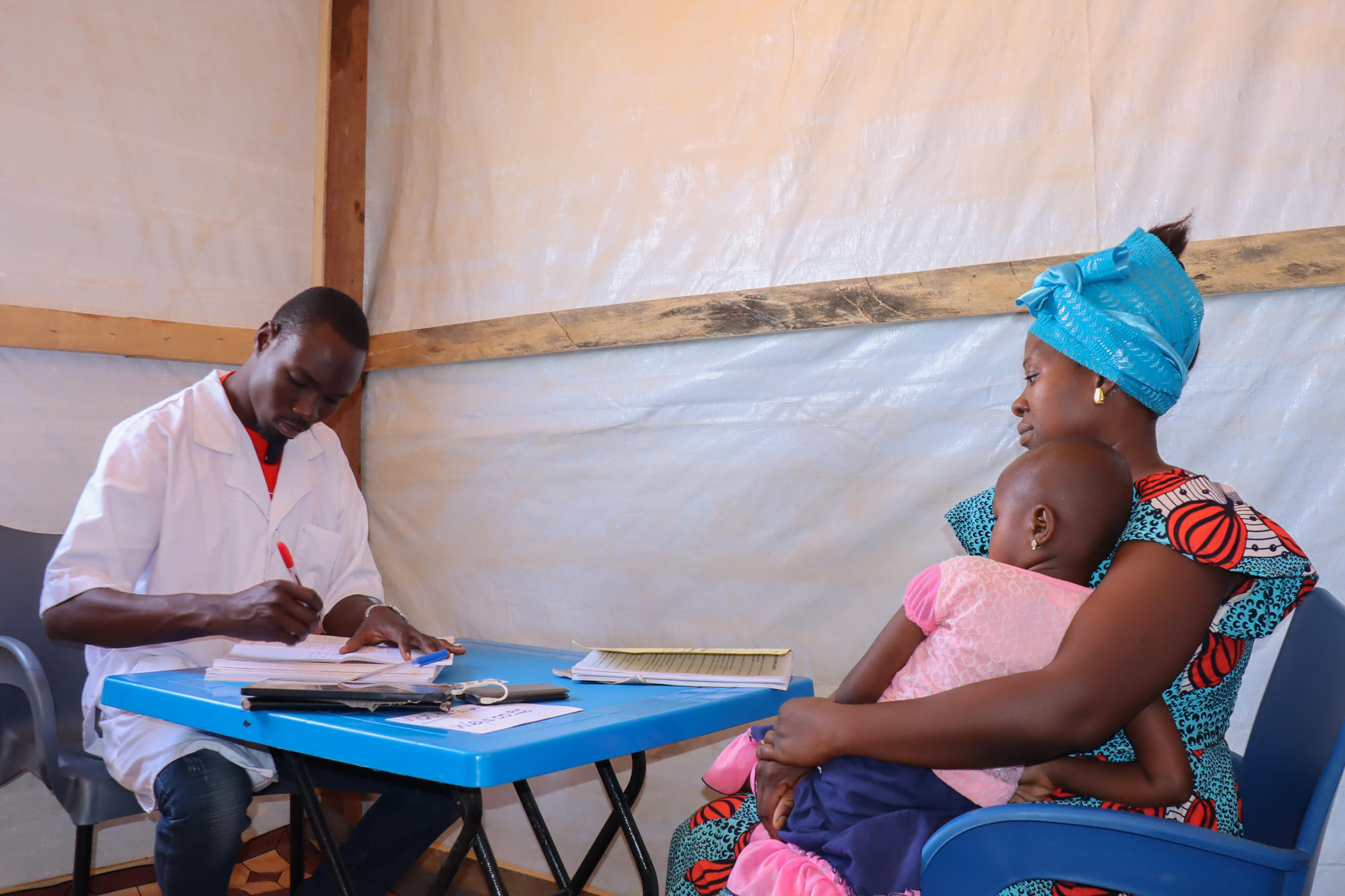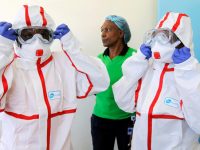“As the pandemic continues and as we discuss a global health and socioeconomic recovery, we…

Burkina Faso, COVID-19 Outbreak Compounds the Ongoing Humanitarian Crisis
The humanitarian crisis in Burkina Faso is deteriorating rapidly. In the past few months, almost 480,000 people were forced to leave their homes due to the escalation of violence. Over 100 health facilities have been shut down and others are operating at minimum capacity. The arrival of seasonal spikes in malaria and malnutrition will place an even heavier burden on a health system already on the verge of collapse. On top of that, Burkina Faso is one of the countries with the highest number of confirmed COVID-19 cases in Sub-Saharan Africa.
Providing health care to local communities and displaced persons was already difficult in the areas hardest hit by violence, and now the situation is even more complex. In Djibo, a town in the Sahel region with a population of 36,000 that currently hosts 140,000 displaced persons, Medici Senza Frontiere (MSF) has worked in the surgical ward and the emergency room of Djibo medical center since March 2018, providing secondary health care for displaced persons and the hosting communities. MSF has also opened two centres for primary health care that offer services such as prenatal consultations, malaria treatment and distributing clean water to help the population face the situation.
“When you go to the medical center, you can spend the whole day waiting for a consultation because there are too many patients,” said Salam who came to the Djibo medical center with his two children.
As insecurity has grown around Djibo in the past few months, it has become more difficult to reach people living on its outskirts. To ensure these people have access to care, MSF has set up and trained a network of community health workers to treat children under five suffering from common ailments like malaria, diarrhea, and minor respiratory infections.
“In such an unstable security context, with a weakened health system and difficult access to populations, humanitarian organizations, including MSF, are finding it difficult to prepare for this critical period. And the COVID-19 pandemic is going to make our task that much harder.” said Hassan Maïyaki, MSF head of mission in Burkina Faso.
“At the moment, our ability to bring staff into the country is limited due to international restrictions. We are worried about the delivery of medical and pharmaceutical supplies, not to mention the risk of not being able to provide safety devices to health workers providing care on the frontlines in the response to COVID-19”
Preparing for peaks of malaria and malnutrition amid the coronavirus pandemic
The main problems MSF teams are facing in the country are malaria and malnutrition that will likely worsen with the upcoming seasonal peaks while comunities have been struggling to survive in precarious living conditions with a lack of access to water and food shortages.
“Last year, malaria was the most common medical issue among our patients,” said Hassan Maïyaki, MSF head of mission in Burkina Faso. “We now fear the worst as the seasonal peak between May and October is approaching, many health facilities have closed and people are stranded in inaccessible areas with very limited access to health services,”said Hassan Maïyaki.
According to the World Food Program (WFP), the number of people suffering from food insecurity could double from just over one million to 2.1 million as the annual food shortage season approaches in June. Last year’s harvests were poor, and people are already weak and vulnerable. Between January and March–months before the traditional start of the “hunger gap,” our teams cared for nearly 400 malnourished children in Barsalogho, Gayeri, and Matiacoali.
MSF medical teams are providing primary health care to people in various areas of the country (in Barsalogho and Kaya in the Centre-North region, Gayeri and Matiacoali in the East region, and Titao and Ouindigui in the North region). In addition to providing support to urban health centers in Titao, MS Falso runs a mobile clinic to provide health care in remote areas.
Integrating COVID-19 responseIntegrare la risposta al Covid-19
Since the first COVID-19 was confirmed on 9 March, Burkina Faso has seen a rapid increase of the outbreak in 9 out of 13 regions. MSF is preparing to support health authorities’ response through a number of initiatives including health promotion, staff training and strengthening the capacity of health facilities to manage and treat COVID-19 patients. This intervention also includes preventative and control measures of the infection and setting up isolation areas. MSF is also preparing to support case management in the capital Ouagadougou and has begun to treat patients in dedicated facility in Bobo Dioulasso, the second largest city in the country.
The priority for MSF teams is to continue regular health care activities in Burkina Faso while adapting to the new challenges posed by the pandemic. In Fada N’Gourma, in the East region, for example, the team had to momentarily suspend and reorganize the mass measles vaccination campaign because of new regulations on mass gatherings. The vaccination campaign will resume in the coming days. In the province of Mouhoun, an area in western Burkina Faso already hit by the COVID-19, an MSF team has vaccinated over 72,000 children under the age of 10 for measles in Dedougou, and about 37,000 under the age of 14 in Boromo.
“Temporary interruptions of preventive programs, such as seasonal malaria chemoprevention or measles vaccinations, could trigger new outbreaks. We have to make it clear for all stakeholders and donors that any COVID-19 response must be integrated with other major health programs, including measles, malaria, and malnutrition.” said Maïyaki of MSF.
“Seasonal shocks, such as the period of food shortages or the seasonal malaria transmission peak, will soon affect people across Burkina Faso and young children in particular,” he said. “We must be fully prepared for the post-COVID-19 situation, as its indirect consequences could lead to a new phase of emergencies if basic needs are not met.”




